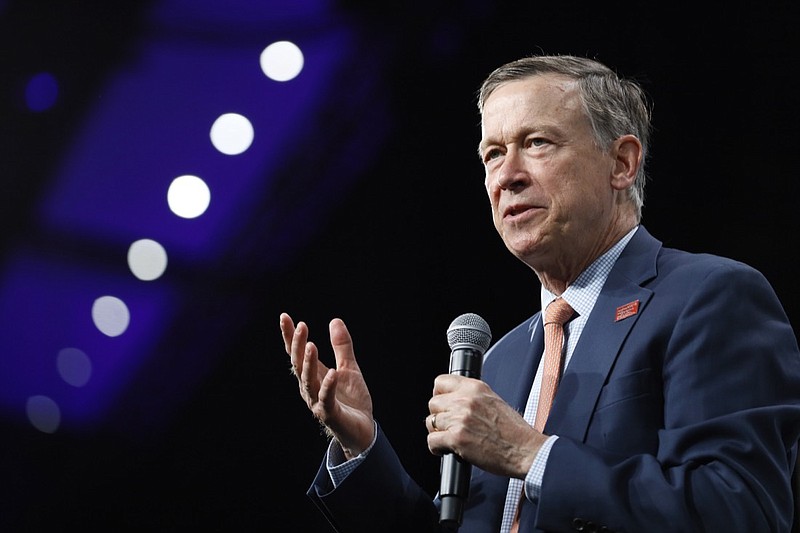There are two quite different paths toward change in the 2020 elections. One would involve getting rid of President Trump but leaving Washington gridlocked. The other would see a Democratic president elected with a Democratic Congress. For the first time in a decade, progressives, with some help from moderates, would have a chance to govern and begin to push back against the conservative takeover of the federal judiciary.
It will all come down to the fight to control the Senate.
And the Democrats' chances of winning a majority took a modest step forward when former Colorado Gov. John Hickenlooper ended his campaign for the Democratic presidential nomination and signaled he was considering taking on Republican Sen. Cory Gardner.
If Democrats won the White House, they would need a net three-seat gain to control the Senate with the vote of a Democratic vice president. It's difficult to imagine this happening without the defeat of the three most vulnerable Republican incumbents, Gardner and Sens. Susan Collins, R-Maine, and Martha McSally, R-Arizona. Alabama Democratic Sen. Doug Jones faces a very tough reelection campaign in a deeply Republican, pro-Trump state. A Jones loss would move the Democrats' victory line to four pickups.
Their chances of getting there depend in part on whether Montana's Democratic Gov. Steve Bullock decides to end his own presidential candidacy to take on Republican Sen. Steve Daines. It's hard to see any other Democrat beating Daines.
Hickenlooper's decision to withdraw points to two important dynamics in the Democratic presidential race. The first is that former Vice President Joe Biden is blocking the emergence of any other moderate or center-left candidate. Absent a Biden collapse in the next few months, there will be little room for candidates such as Sens. Amy Klobuchar of Minnesota or Michael Bennet of Colorado.
It was striking that a Quinnipiac poll earlier this month found that Biden was winning just 19% of Democrats who said they were "very liberal" and 28% who called themselves "somewhat liberal." But he was taking 43% among those who called themselves moderate or conservative.
This leads to the other dynamic: aggressively taking on the left, as Hickenlooper did, is not, for now at least, a winning strategy for more moderate presidential candidates. This is partly because their real competition comes from Biden, but also because progressive Democrats have shown themselves far more open to moderate candidates in Senate or House races than in the presidential race. Progressives have been willing to make pragmatic judgments about who is best positioned to win a given Senate or House seat but want to make a strong statement in the presidential contest.
If Senate Democrats are hopeful that Hickenlooper and possibly Bullock could help them take the Senate, they are also looking to what they call "the Heller Effect" to get them the rest of the seats they need. In 2018, Nevada's Republican Sen. Dean Heller lost in part because he was cross-pressured between showing support for Trump to rally his Republican base and demonstrating independence from Trump to attract middle-of-the-road voters.
This political inconstancy didn't work for Heller, and Democrats think that the same neither-one-thing-nor-the-other dynamic could hurt Republican Sens. Thom Tillis in North Carolina and Joni Ernst in Iowa - as well as Gardner, Collins, and McSally.
As for Hickenlooper, he often seemed uncomfortable as a presidential candidate but was eloquent whenever he talked about his bipartisan achievements as governor of Colorado. It's an approach that could serve him well as he heads home.
The Washington Post Writers Group
